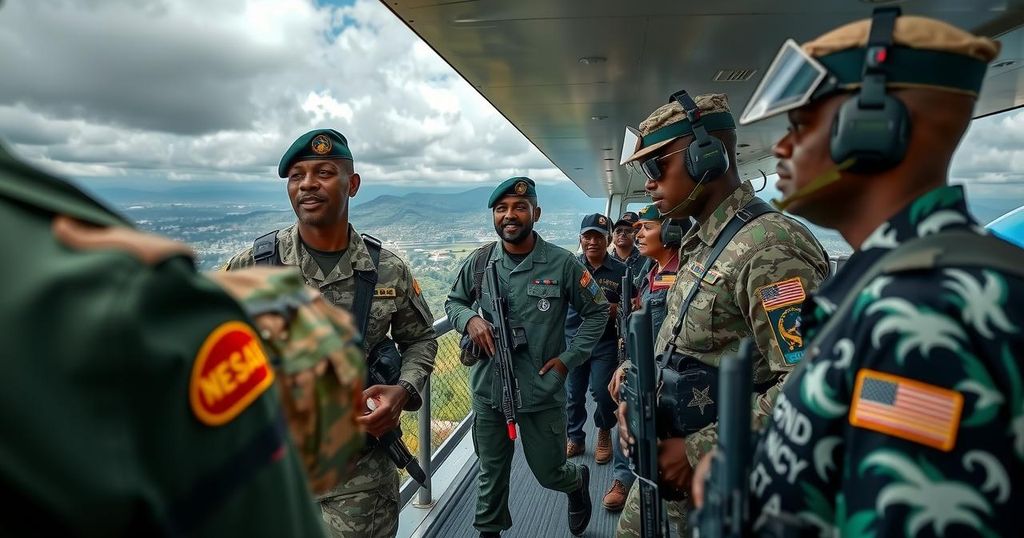Approximately 200 Russian military instructors have been deployed to Equatorial Guinea to enhance security for President Teodoro Obiang Nguema Mbasogo and his son, a potential successor. This move is part of Russia’s strategy to reinforce its influence in Africa, amid ongoing political instability. The instructors will also train elite security units, with potential support from Belarusian personnel.
Recent developments have seen the deployment of approximately 200 Russian military instructors to Equatorial Guinea, with the primary task being the enhancement of security measures for President Teodoro Obiang Nguema Mbasogo. These instructors are expected to train elite units designated to ensure the safety of the president, particularly focusing on his son, Teodoro Nguema Obiang Mangue, who is viewed as a potential successor and a wealthy individual. In addition, the Russian contingent may include personnel from Belarus and airborne troop representatives. This military move is perceived as part of Russia’s broader strategy to extend its influence in Central and West Africa, particularly in regions embroiled in political instability. Notably, President Mbasogo has maintained his regime since 1979, following a coup that placed him in power and has since faced challenges from various insurgent movements.
The deployment of Russian military personnel to Equatorial Guinea occurs within a larger context of Russia’s strategic interest in Africa, where it aims to bolster its diplomatic and military presence. Equatorial Guinea, under the long-standing leadership of President Teodoro Obiang Nguema Mbasogo, has become a focal point due to its relatively stable government in a region rife with coups and military strife. The involvement of Russian and Belarusian instructors signifies a commitment to protect governmental stability, particularly in light of the potential succession of the president’s son, who embodies economic power and future leadership aspirations within the nation.
In summary, the recent dispatch of Russian military instructors to Equatorial Guinea underscores Russia’s intent to solidify its influence in Central Africa while ensuring the security of a key political figure. With longstanding ties to the Mbasogo regime, Russia’s military engagement reflects not only a tactical move to support an allied government but also to advance its geopolitical interests in a strategically significant region.
Original Source: 112.ua







